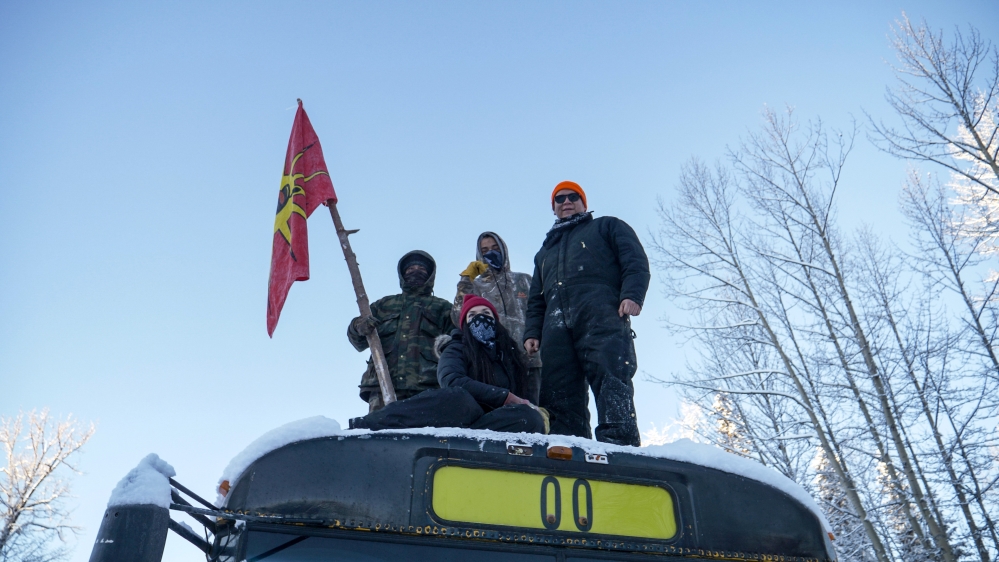Students and teachers at premier university recount the horrors of Sunday night's violence that injured dozens.
by Bilal Kuchay
6 Jan 2020
MORE ON INDIAWhat's going on in Kashmir? | Start HeretodayWorld reacts after Iran fires missiles at US targets in IraqtodayIndian woman faces arrest for carrying 'Free Kashmir' placardtoday'Millions' of Indians strike in protest against gov't policiestodaNew Delhi, India - Surya Prakash - a visually impaired student at New Delhi's Jawaharlal Nehru University (JNU) - says masked assailants broke into his ground-floor room in Sabarmati Hostel and beat him with iron rods.
"I kept shouting that I'm blind but they didn't listen to me," Prakash, 25, who is pursuing his PhD in Sanskrit, told Al Jazeera on Monday.
More:
As India's JNU protests fee increase, poor students fear for future
Police round up students in India's capital as fee protests grow
Dozens injured after masked men raid Indian university
Prakash's left arm and back are swollen. He told Al Jazeera that he could not say who the attackers were.
He is among at least 26 students and teachers who were injured during Sunday night's violence that has caused an outrage, with people across several cities staging solidarity protests on Monday.
Videos shared on social media showed masked men roaming inside the university's hostels and attacking students and teachers with iron rods, sticks and sledgehammers and vandalising properties.
Prakash was rescued by other students and taken to New Delhi's All India Medical Institute of Sciences (AIIMS) for treatment. He was discharged after an hour.

Protests have been organised across several Indian cities
in solidarity with JNU students [Adnan Abidi/Reuters]
"I couldn't sleep all night. I froze in my bed thinking they might come again," he said.
The Sanskrit scholar says he is getting threat calls from unknown numbers for speaking out.
"I'm scared but I do not want to remain silent. I want everyone to know what happened with me. I want them to understand that nobody is safe here," he said, adding that he is not part of any political party and spends most of his time studying in his room.
'Mayhem'
Students and teachers at JNU have been protesting for the past few months against fee rise, which they say will hurt poor students.
The university, a bastion of left-wing student politics, witnessed scuffles between the left-leaning student's body and Akhil Bharatiya Vidyarthi Parishad (ABVP) - a student group linked to the ruling Bharatiya Janata Party (BJP) - earlier on Sunday.
I'm scared but I don't want to remain silent. I want them to understand that nobody is safe here.
SURYA PRAKASH, VISUALLY IMPAIRED STUDENT AT JNU
The JNU Teachers Association had called for a meeting to restore peace on campus on Sunday evening, a move backed by the students' union.
Witnesses said the attacks on Sunday were carried out by ABVP members, a charge the right-wing student outfit has denied.
Aishe Ghosh, president of the students' union who was badly injured, and other students and teachers said the violent mob created "mayhem" and "terrorised" the university for close to three hours.
Many Indians took to social media to criticise the handling of the situation by the Delhi police, and some questioned the police on why it did not arrest the perpetrators of the violence.
The incident came weeks after police were accused of brutalities in handling student protests against the new citizenship law at Jamia Millia Islamia university and Aligarh Muslim University.
Meanwhile, the Delhi police have registered a case against unidentified people for rioting and damage to property.
"I couldn't sleep all night. I froze in my bed thinking they might come again," he said.
The Sanskrit scholar says he is getting threat calls from unknown numbers for speaking out.
"I'm scared but I do not want to remain silent. I want everyone to know what happened with me. I want them to understand that nobody is safe here," he said, adding that he is not part of any political party and spends most of his time studying in his room.
'Mayhem'
Students and teachers at JNU have been protesting for the past few months against fee rise, which they say will hurt poor students.
The university, a bastion of left-wing student politics, witnessed scuffles between the left-leaning student's body and Akhil Bharatiya Vidyarthi Parishad (ABVP) - a student group linked to the ruling Bharatiya Janata Party (BJP) - earlier on Sunday.
I'm scared but I don't want to remain silent. I want them to understand that nobody is safe here.
SURYA PRAKASH, VISUALLY IMPAIRED STUDENT AT JNU
The JNU Teachers Association had called for a meeting to restore peace on campus on Sunday evening, a move backed by the students' union.
Witnesses said the attacks on Sunday were carried out by ABVP members, a charge the right-wing student outfit has denied.
Aishe Ghosh, president of the students' union who was badly injured, and other students and teachers said the violent mob created "mayhem" and "terrorised" the university for close to three hours.
Many Indians took to social media to criticise the handling of the situation by the Delhi police, and some questioned the police on why it did not arrest the perpetrators of the violence.
The incident came weeks after police were accused of brutalities in handling student protests against the new citizenship law at Jamia Millia Islamia university and Aligarh Muslim University.
Meanwhile, the Delhi police have registered a case against unidentified people for rioting and damage to property.
Violence at Sabarmati Hostel
At a news conference on Monday, the JNU Teachers' Association urged India's president to dismiss JNU's vice chancellor in the wake of the violence.
"When we saw group wearing masks, we thought we will talk to them and ask them who they are and why are they in the campus wearing masks," Atul Sood, a professor at JNU, told Al Jazeera. "Before we could reach to them, they started throwing stones at us."
"Everyone ran for safety but the mob armed with rods and sticks chased the students inside hostels and beat many of them. It was complete mayhem," he said.
Many of the students chased by the rampaging mob took shelter inside Sabarmati Hostel, where most of the violence happened.
Jyoti, who withheld her surname due to security reasons, said she was in her room when the mob attacked Sabarmati Hostel.
She rushed out into the corridor to see what was happening. "They were about 30 people armed with iron rods, hammers and carrying some spray and beating students," she told Al Jazeera.
The only sound was doors being banged and glasses being broken and students screaming and crying for help
SHREYA GHOSH, A PHD STUDENT AT THE CENTRE FOR POLITICAL STUDIES, JNU
About a dozen students including Jyoti made a human chain to stop them from entering into their rooms. Jyoti took out her phone and began making videos.
"When they saw me doing the video recording, they beat me with sticks," she said. "But other students saved me. Everyone was scared and many students had panic attacks and were rushed to hospital later."
On Monday, the wardens of the hostel resigned, stating in their resignation letters that they were quitting on "moral grounds" as they were unable to provide security to the hostel residents.
Shreya Ghosh, a PhD student at the Centre for Political Studies, was one of the students who took shelter inside Sabarmati Hostel in a single-occupancy room along with nearly 20 other students.
"We put the lights off, mobiles on silent mode. At least 10 of us stood against the door to block it so that attackers could not come in," she said.
"We thought if the door gets unblocked, we all will lose our lives."
"The only sounds we heard were doors being banged and glasses being broken and students screaming and crying for help," she told Al Jazeera.
Ghosh and several other students at JNU alleged that police and security personnel did not come for their help while they were under attack.
"It was an organised mob who were determined to do what they were up to. It was a different sense of fear," she said.
"I'm speechless because police knew this is happening, the security knew this is happening and there was no one from them to stop this for one hour despite police being there in the campus and despite students calling for help."
The Delhi police said they were investigating how masked men entered the university. "Social media and CCTV footage will be a part of the investigation," police officer Devendra Arya told Reuters news agency.
JNU students and many teachers have faced attacks and have been called "anti-nationals" for opposing the Hindu supremacist agenda of Prime Minister Narendra Modi.
"If ABVP and this government thinks that we will stop fighting against its brutal policies, they are mistaken. JNU will fight till its last student is alive. They cannot break our spirit," said another student, Kaushiki.
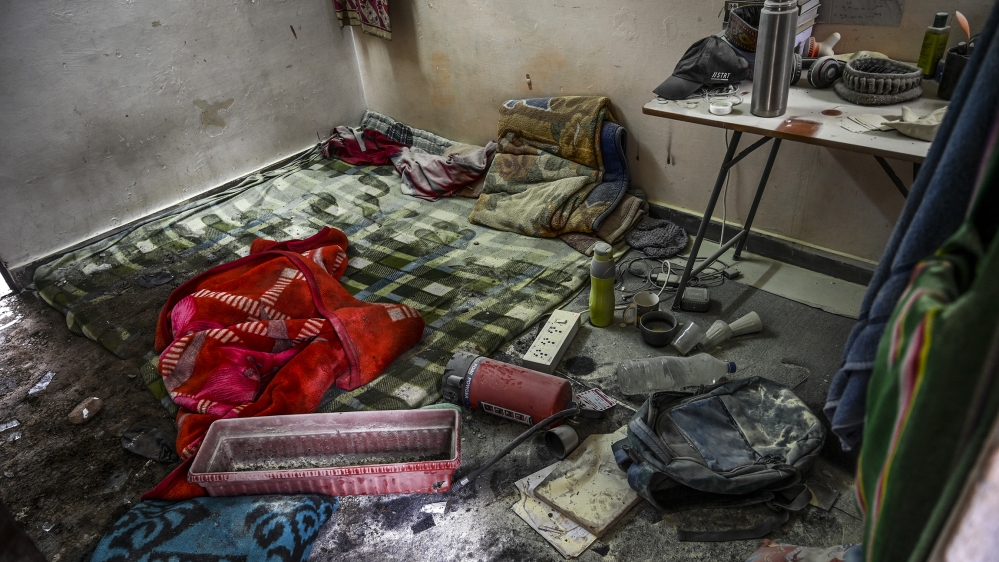
A general view of a vandalised hostel room on the JNU
campus [Money Sharma/AFP]
SOURCE: AL JAZEERA NEWS
SOURCE: AL JAZEERA NEWS
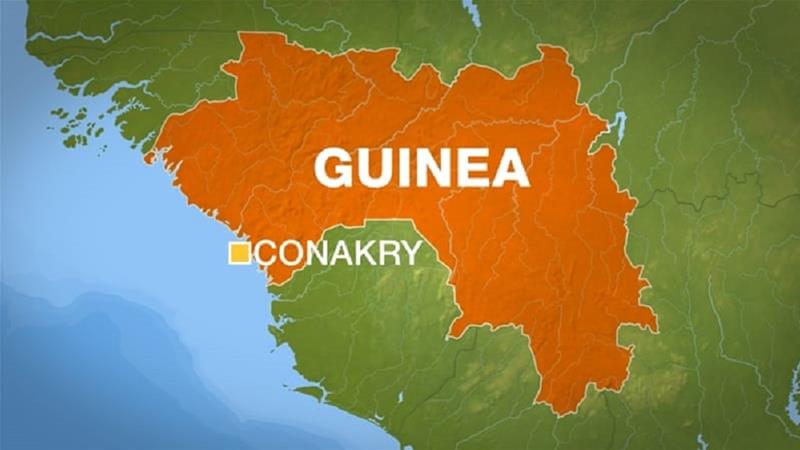

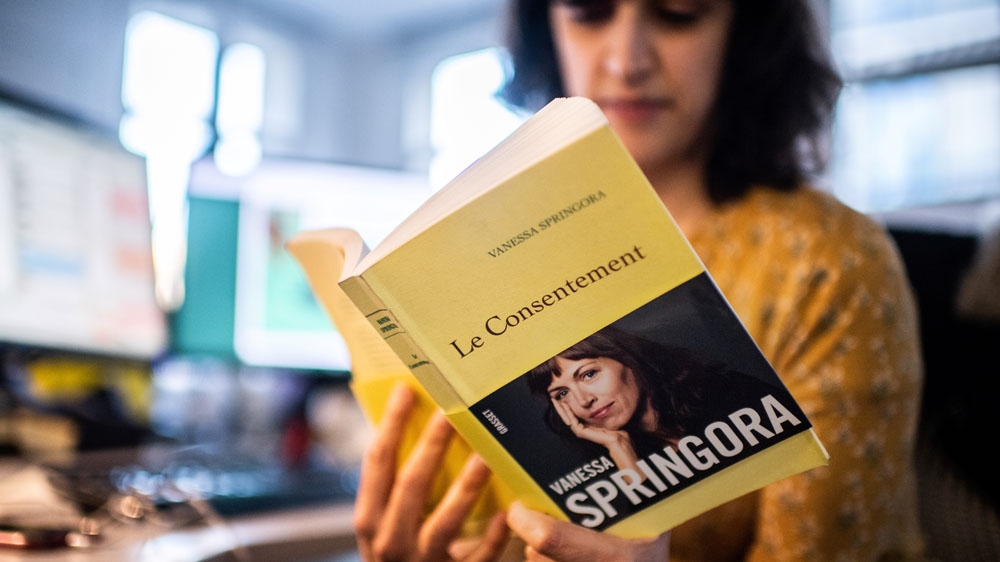
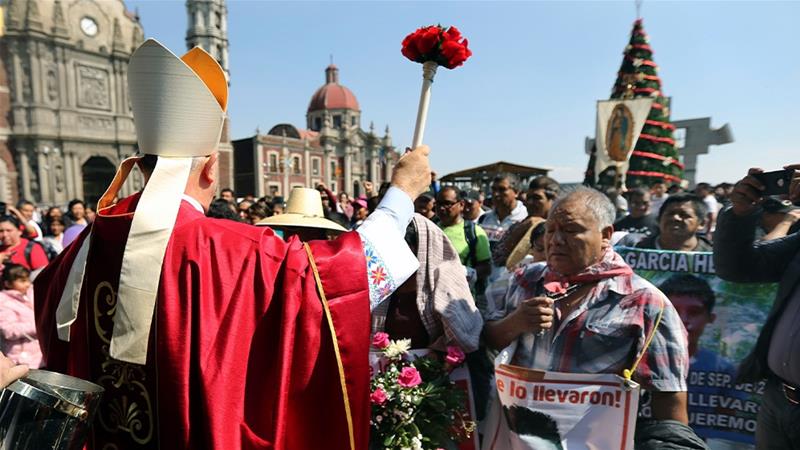
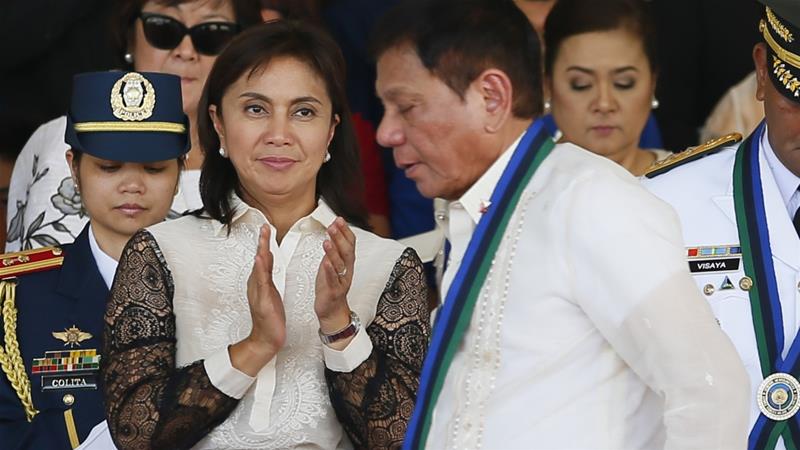
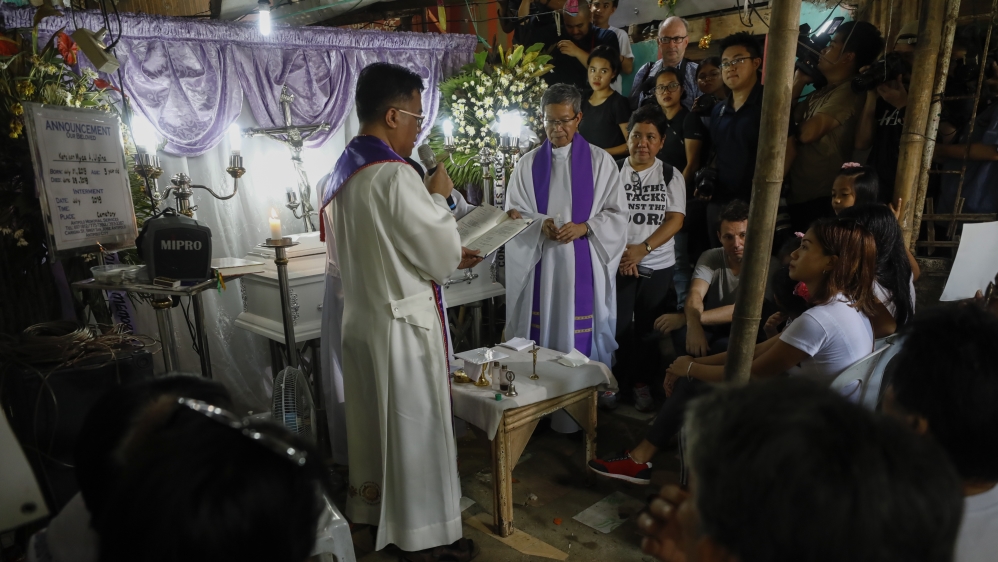
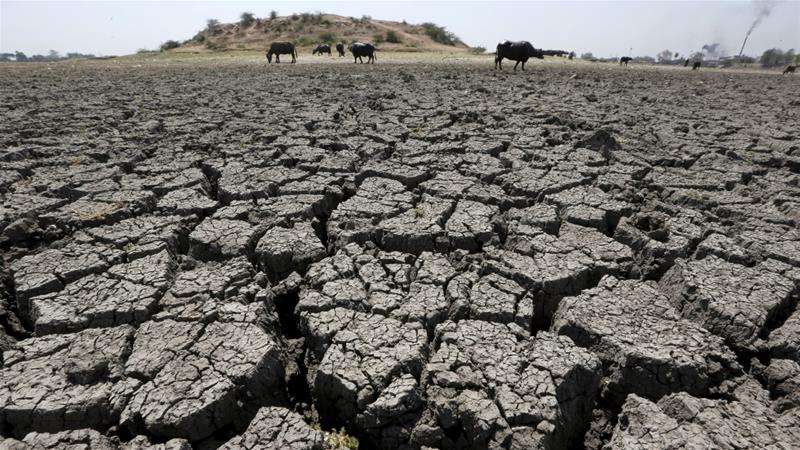




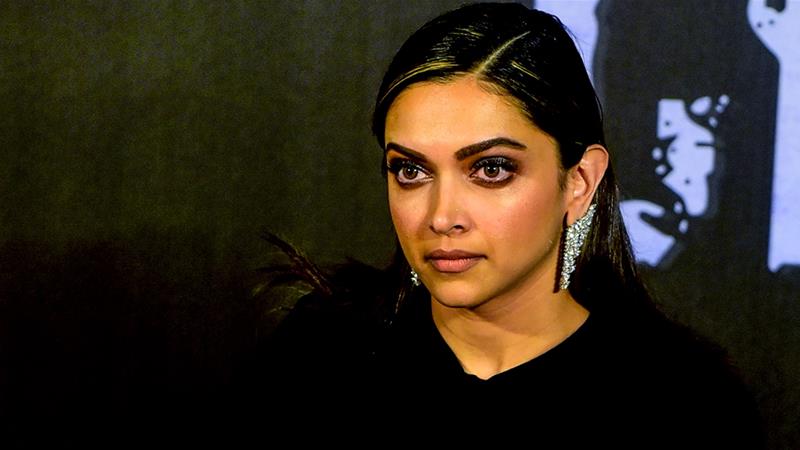 Deepika Padukone looks on as she attends the trailer launch of her upcoming Hindi film Chhapaak in Mumbai [File: Sujit Jaiswal/AFP]
Deepika Padukone looks on as she attends the trailer launch of her upcoming Hindi film Chhapaak in Mumbai [File: Sujit Jaiswal/AFP]


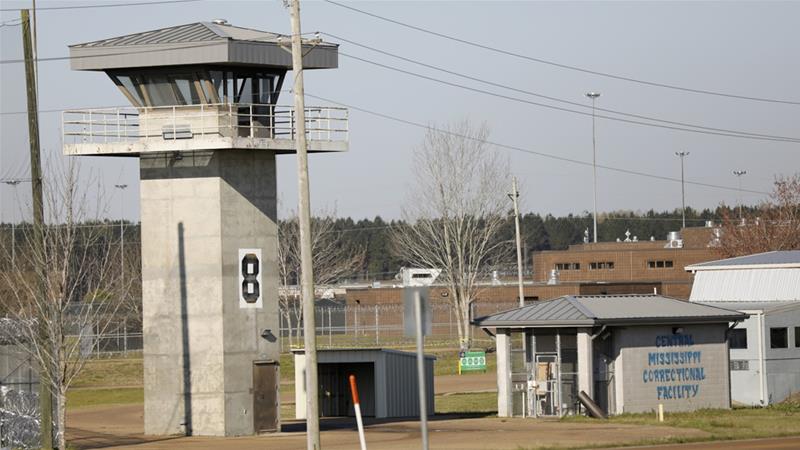 Prisoner advocates are calling for a federal investigation into the Mississippi state prison system, following the most recent spate of violence. [File: Rogelio V Solis/The Associated Press]
Prisoner advocates are calling for a federal investigation into the Mississippi state prison system, following the most recent spate of violence. [File: Rogelio V Solis/The Associated Press]

